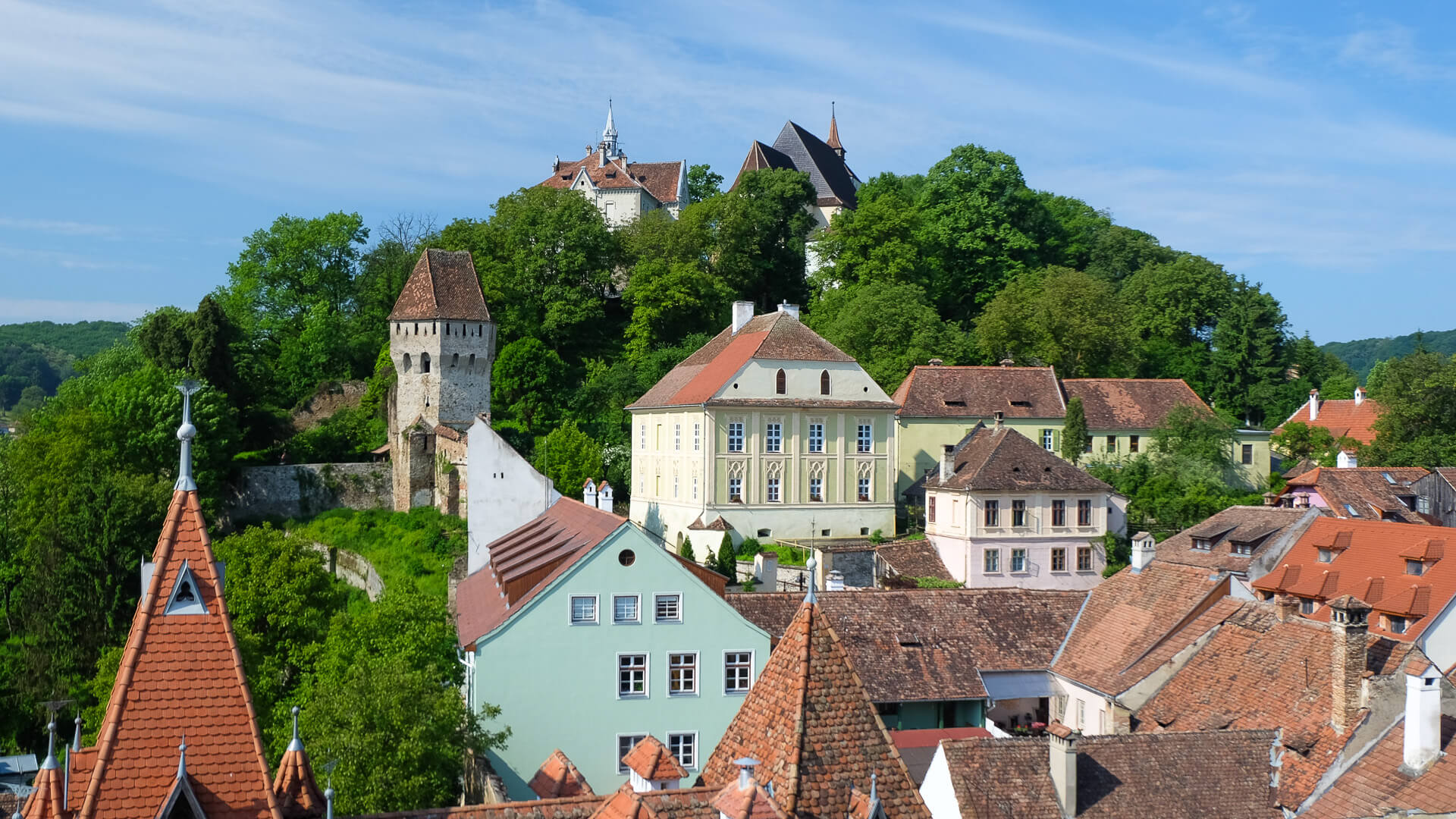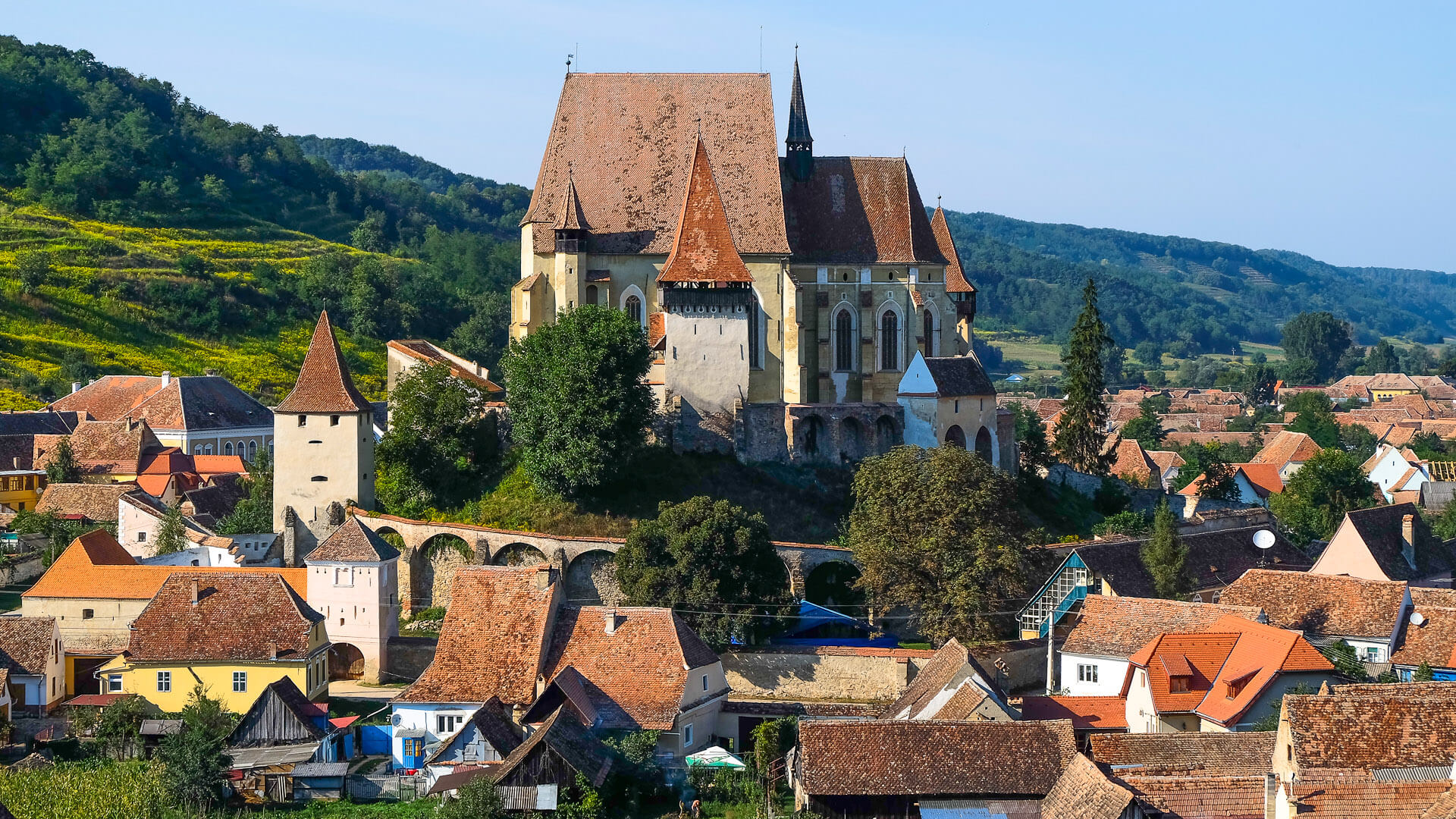Leaving Sibiu we pass through different Transylvanian traditional shepherd villages, displayed along Shepherd Valley. Reaching Sighisoara, you will explore the Old Town of Sighisoara with cobbled streets, medieval houses and ornate churches. You will visit the Clock Tower, Church on the Hill and Dracula`s house, the supposedly birth place of Vlad the Impaler.
Sighisoara played an important strategic and commercial role at the edges of Eastern Europe for several centuries. Sighișoara became one of the most important town of Transylvania, with artisans from throughout German Empire visiting the settlement. The German artisans and craftsmen dominated the town economy, as well as building the fortifications protecting it. It is estimated that during the 16th and 17th centuries Sighișoara had as many as 15 trade guilds with 20 handicraft branches.
Leaving Sighisoara, the next important stop in Biertan, listed as UNESCO site and one of the first German settlements in Transylvania. This fortified church, surrounded by three rows of fortifications, was built by the German peasants in Transylvania and was used for nearly 300 years as the residence of the Transylvanian Archbishop. A room in the citadel was used for a long time as a reconciliation place for couples seeking a divorce.
TOUR DETAILS
PRICE DETAILS
INCLUSIONS
EXCLUSIONS
INFORMATION & TERMS
Sighisoara played an important strategic and commercial role at the edges of Eastern Europe for several centuries. It became one of the most important tradesman town of Transylvania, with artisans from throughout German Empire visiting the settlement. The craftsmen guilds dominated the town economy, as well as building the fortifications protecting it. During the 16th and 17th centuries Sighișoara had as many as 15 trade guilds with 20 handicraft branches.
02
Biertan fortified church
The next important stop is Biertan Fortified Church, listed as UNESCO site and one of the first German settlements in Transylvania. This fortified church, surrounded by three rows of fortifications, was built by the German peasants in Transylvania and was used for nearly 300 years as the residence of the Transylvanian Archbishop. A room in the citadel was used for a long time as a reconciliation place for couples seeking a divorce.



Reviews
There are no reviews yet.